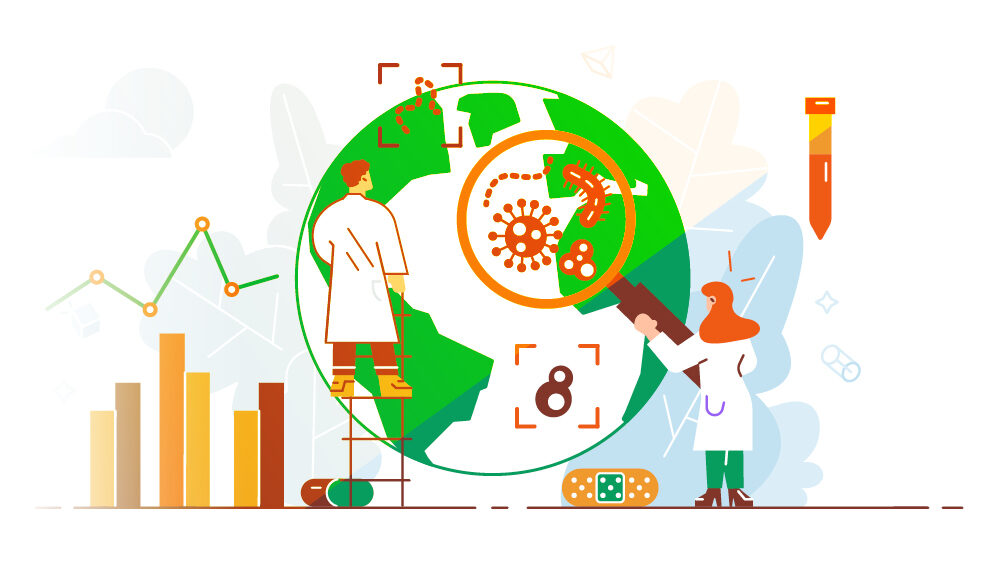What You Need to Know to Become an Epidemiologist

COVID-19 has seriously disrupted daily life worldwide. Doctors and nurses fight to keep patients alive in hospitals, teachers are struggling to help students learn, and more parents and caregivers are working full-time while also caring for their families. There are also people fighting to learn more about the vaccine, discover how this virus will affect people long term, and identify ways to reduce the overall risk. Some of these people are epidemiologists.
Epidemiologists are public health workers who investigate patterns and causes of disease. Their main job objective is to reduce the risk and occurrence of negative health outcomes. This is done through research, community education, health policy, and public health. Epidemiologists typically specialize in a specific public health area, such as environmental health, infectious disease, mental health, or public health preparedness.
Main Duties of an Epidemiologist
According to the Bureau of Labor Statistics (BLS), the typical responsibilities of epidemiologists across all industries are:
• Plan and direct studies of public health problems to find ways to prevent or treat them
• Communicate findings with health professionals, the public, and policymakers
• Collect and analyze information to find causes of diseases or other health problems
Epidemiologists may also supervise professional, technical, and clerical personnel and manage all programs through planning, progress, and improvement.
Important Skills of an Epidemiologist
To be successful as an epidemiologist, it is important to have the following skills:
• Proficient in biology, chemistry, and behavioral sciences
• Critical thinking and attention to detail
• Math and statistical skills
• Scientific research and writing
How to Become an Epidemiologist
It takes time, education, and work experience to become an epidemiologist. Epidemiologists must be passionate about their work, education, research, and serving the public.
Step 1: Earn a bachelor’s degree
There is no specific degree required to become an epidemiologist. However, it is recommended to complete a degree at the undergraduate level in public health, biology, health sciences, or nursing. Most schools do not have a bachelor’s degree specific to epidemiology, but the courses in these fields will prepare you for this career.
According to the BLS, entry-level epidemiologist positions require at least a master’s degree, so a bachelor’s degree provides you the foundation to continue your education. At Excelsior College, you can complete a bachelor’s degree in health sciences fully online. With this degree, you will learn about the organization, purpose, and quality of U.S. health care, and excel in subjects important for your career, including health care policies, federal regulations, cultural competencies, and strategic approaches for regional health issues. You will take courses in statistics, natural sciences, and psychology that will provide the foundation needed to continue your education and become an epidemiologist.
Step 2: Complete a master’s degree
Typically, a master’s degree in public health with a concentration in epidemiology will prepare you for this career. Coursework includes community health, environmental health, and research methods that prepare students for the data analysis and research required of epidemiologists.
Step 3: Work experience
Along with completing your education, gaining work experience is recommended to enter this field. Fieldwork is critical to this career, as many of the daily responsibilities of an epidemiologist are taught on the job. In addition, work experience gives you the opportunity to use your academic skills in a real-world setting. Experience in public health, research labs, or any related field will prepare you for a career in epidemiology.
Job Outlook
With the ongoing public health crisis of COVID-19, now more than ever is a great time to enter the epidemiology field. In 2020, the BLS reported that this career is expected to grow by 5 percent by 2029, which is much faster than the average for all other occupations. Many jobs are in state and local governments where epidemiologists are needed to help respond to emergencies and to provide public health services. While the average salary for epidemiologists was $74,000 in May 2020, the highest 10 percent earned more than $126,000 a year.
Chat with Excelsior College today to start on your educational journey.



